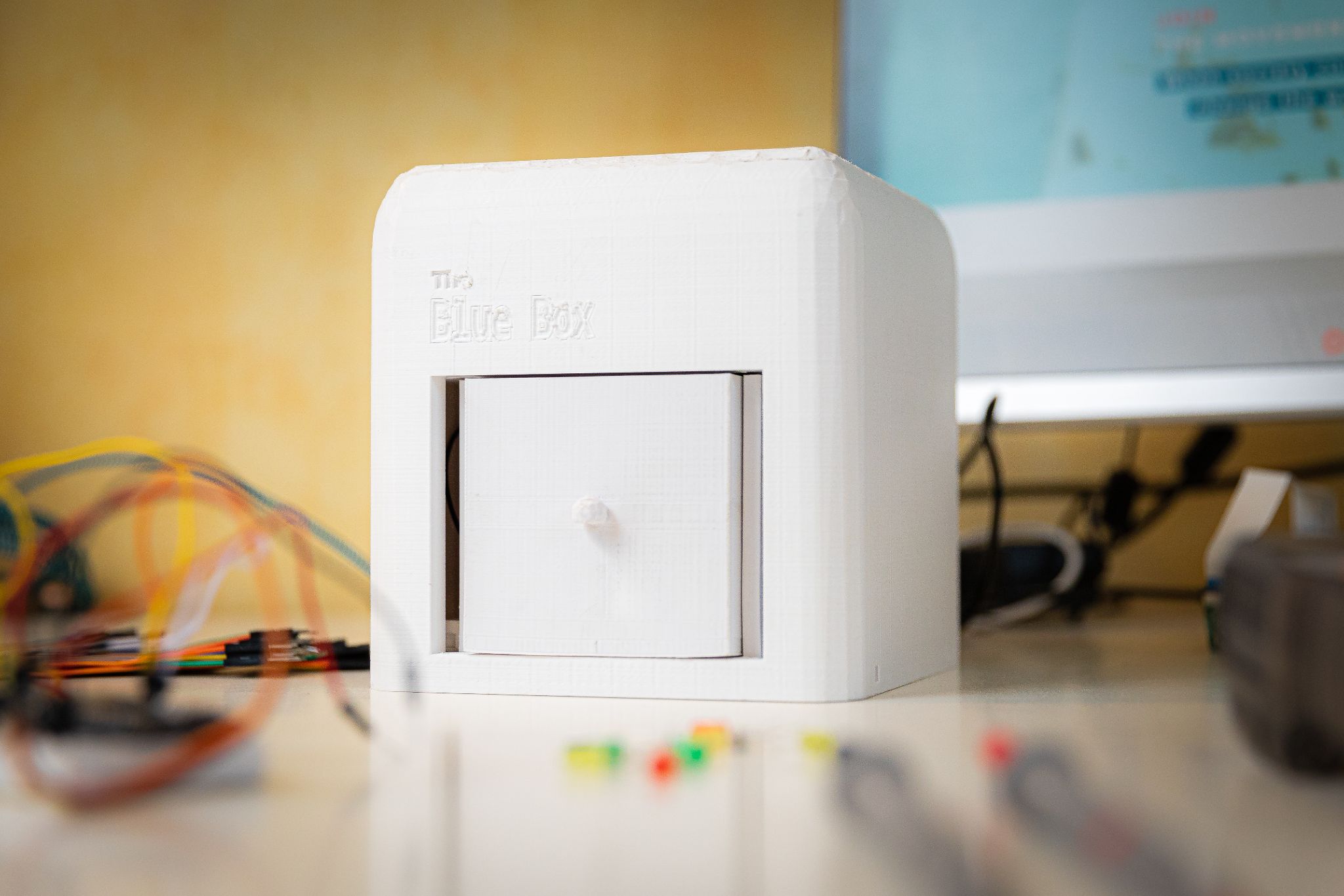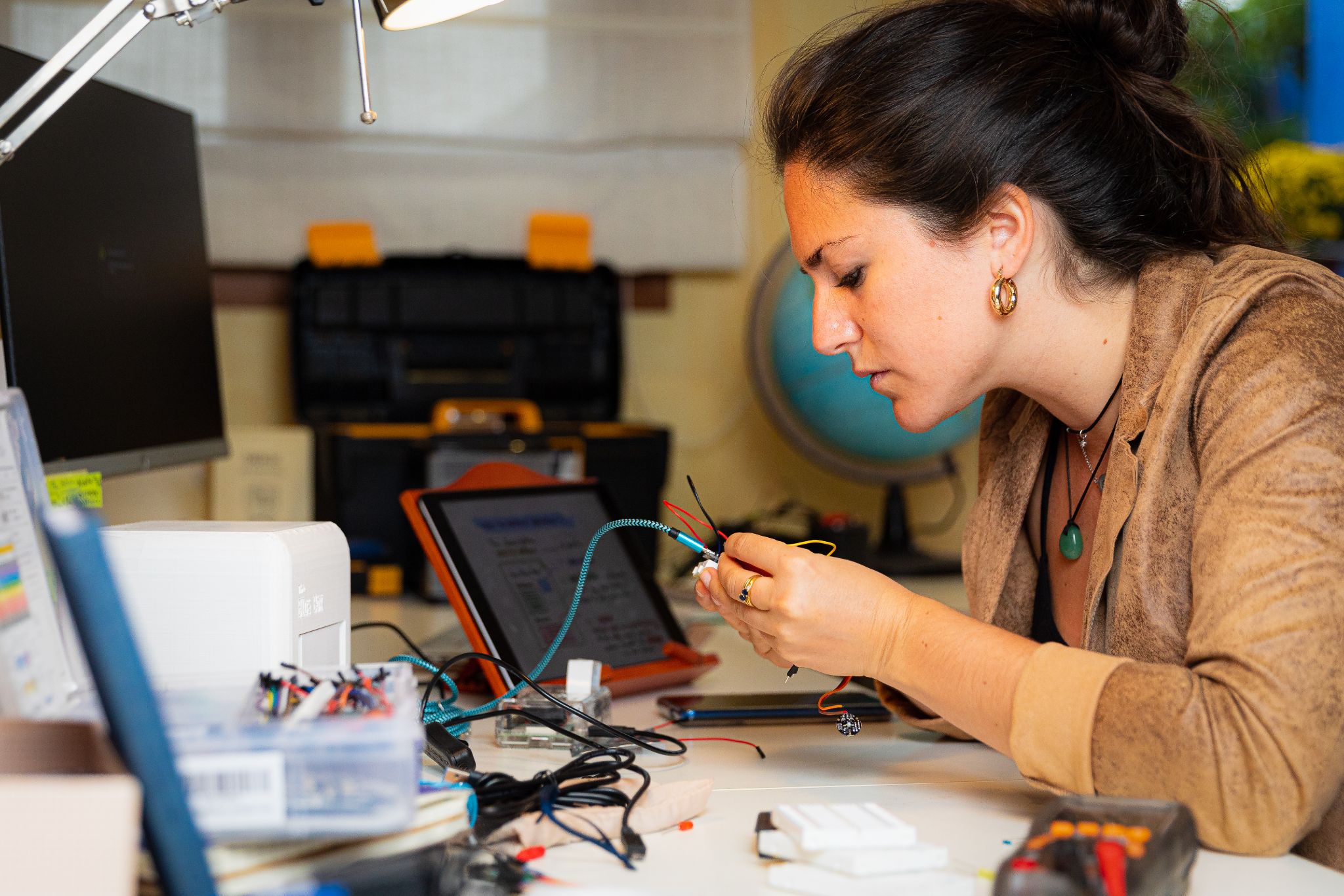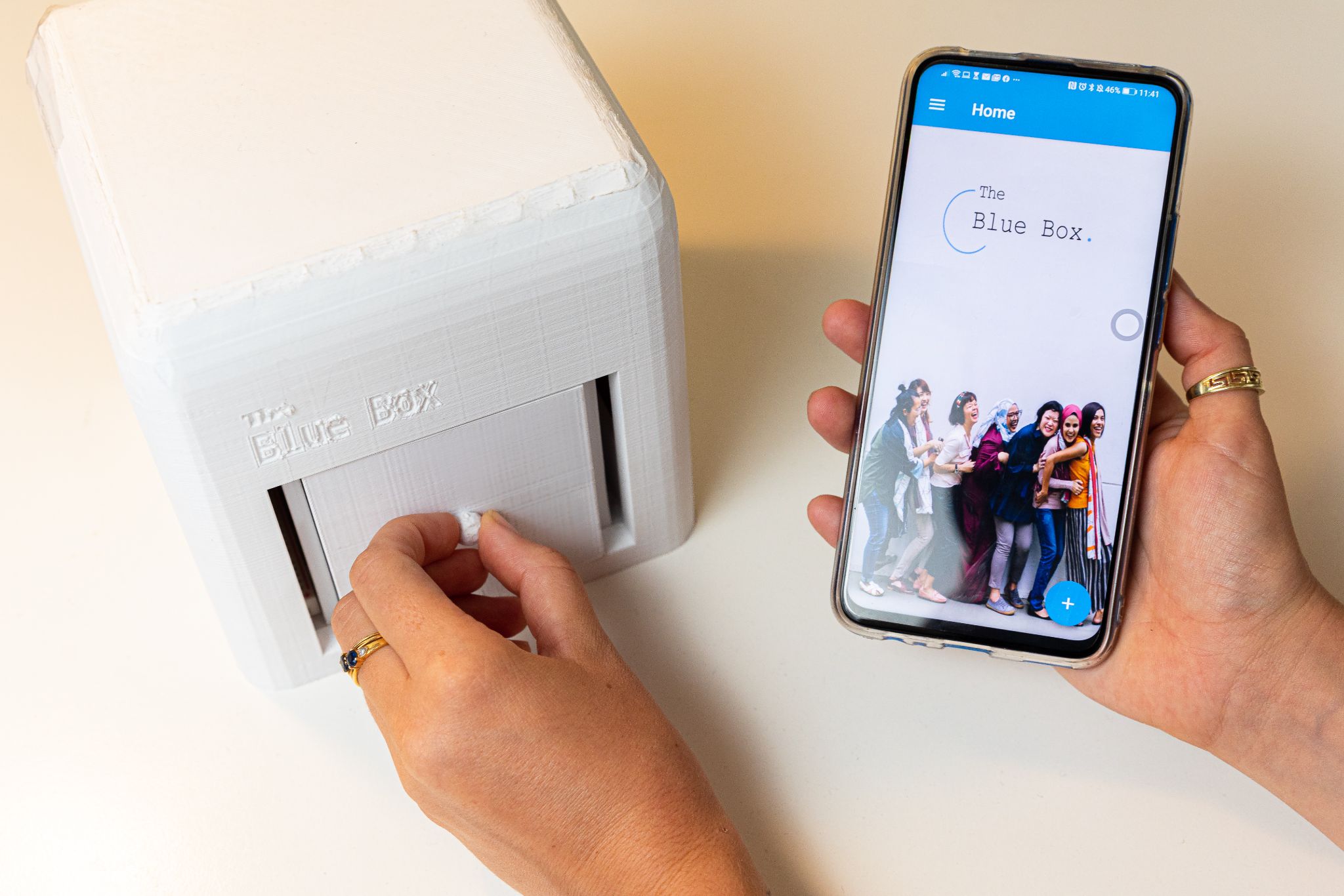Meet Judit Giró Benet, founder of The Blue Box, an AI device that screens for breast cancer at home

A few minutes every morning is all you need.
Stay up to date on the world's Headlines and Human Stories. It's fun, it's factual, it's fluff-free.
Judit Giró Benet’s biomedical device The Blue Box is making an empowering and accessible contribution to the future of medicine. This under-development AI provides an inexpensive, noninvasive, non-irradiating and pain-free breast cancer test designed to be completed quickly and in the comfort of your home.
Winner of the 2020 Global James Dyson Award, Benet’s electronic nose mimics a dog’s olfactory system and reacts to specific metabolites within a urine sample. Unlike the standard in-home pregnancy test, The Blue Box is not a single-use product and can be reused indefinitely by multiple people.
The Blue Box and the future of medicine

Benet’s design follows the P4 medicine model (Predictive, Preventive, Personalized, Participatory), which aims to move away from reacting to illness and move toward maintaining health. P4 medicine takes advantage of global data generated by health applications to build consumer-driven, affordable healthcare focused on prevention and prediction.
“It’s the way I imagine medicine in the future,” says Benet. “I wanted The Blue Box to be done without medical knowledge and to be done at home. Right now, when you are diagnosed with cancer, it’s bad news, especially if you are diagnosed with late-stage breast cancer. In the future, I think that if you are diagnosed with breast cancer, it will mean that you will have a couple of rough months, but it will not be a death sentence. Cancers will be detected earlier and earlier because new tests will exist. In the future, being diagnosed with cancer will be possible to be done at home.
“It’s similar to the case of the pregnancy test. Pharmaceutical companies didn’t want to patent it because they said women cannot get such big news at home. They can’t handle it. Now, women are so empowered that, whatever outcome they want, they have the ability to terminate the pregnancy or carry out the pregnancy.”
Why The Blue Box?

Why create The Blue Box when the mammogram already exists? “I started reading about cancer-smelling dogs, and it turns out that there are already other researchers in the world who have done other kinds of electronic noses,” says Benet.
“For example there are electronic noses to smell gas leaks in aircrafts. There are already even some electronic noses within medicine. I never wanted to make a substitute for the mammogram. What I thought was, ‘What do women actually need?’ I think they need to better understand their health with low-cost, noninvasive and quick tests.”
Many women avoid mammograms for various reasons, including pain, contributing to late diagnoses and dropping survival rates. The Catalan Department of Health discovered that 93.55% of breast cancers diagnosed by a mammogram are classified as “false alarms.”
A mammogram can also increase the risk of developing breast cancer through repeated yearly exposure to doses of radiation. The Blue Box creates a patient-focused testing system that eliminates pain, exposure to radiation and the anxiety of waiting for results or receiving a false positive.
“I got frustrated while studying biomedical engineering because I realized that most of the biomedical research was focused on the male population,” says Benet. “According to the NHS, women are about 30% more likely to have adverse reactions to drugs because most treatments are tested on the male population, and we just assume that both bodies work the same. But biologically, they are different. We have been left out of medicine for too long, and I think it’s time to change that.”
2021 TechCrunch Startup Battlefield
TechCrunch selected 20 startups out of thousands of applicants to pitch their company on the virtual stage. The 2021 TechCrunch Startup Battlefield chooses the most disruptive company out of the contestants, and the winner receives US$100,000 in equity-free prize money. The winners also garner international attention and often secure interest from promising global investors.
This year’s acceptance rate reached just over 1.5%. Given the minuscule figure, The Blue Box’s participation alone is quite an accomplishment. Previous startup competitors include DropBox, Cloudfare and Mint.com.
“It was a crazy opportunity,” says Benet. “We grew a lot during that month. It took a lot of preparation. You have seven minutes on stage, and in seven minutes you have to properly communicate your vision, your mission and your future projection.
“You have to have a very clear perspective on your product … It’s great to know that there are so many other startups in the world that are convinced they will change how things are done. It’s empowering to know that other people are doing the same thing.”
Where is The Blue Box headed?

The company is currently carrying out a preclinical study at 2 Catalan hospitals to train the AI-based algorithm inside The Blue Box. With testing underway, The Blue Box team aims to hit its marketization phase by 2023. Until then, follow its progress, including awards and pitches, via Instagram @thebluebox.ai.
“Biology already has a solution for this mystery that we engineers have been trying to solve for such a long time,” says Benet. “In the end, one of the most beautiful lessons I have learned is that the best machine that will ever exist in the world is biology, nature and the human body.”
Is your business doing something cool that you want to show off? Get in touch at hello@themilsource.com




Comments ()